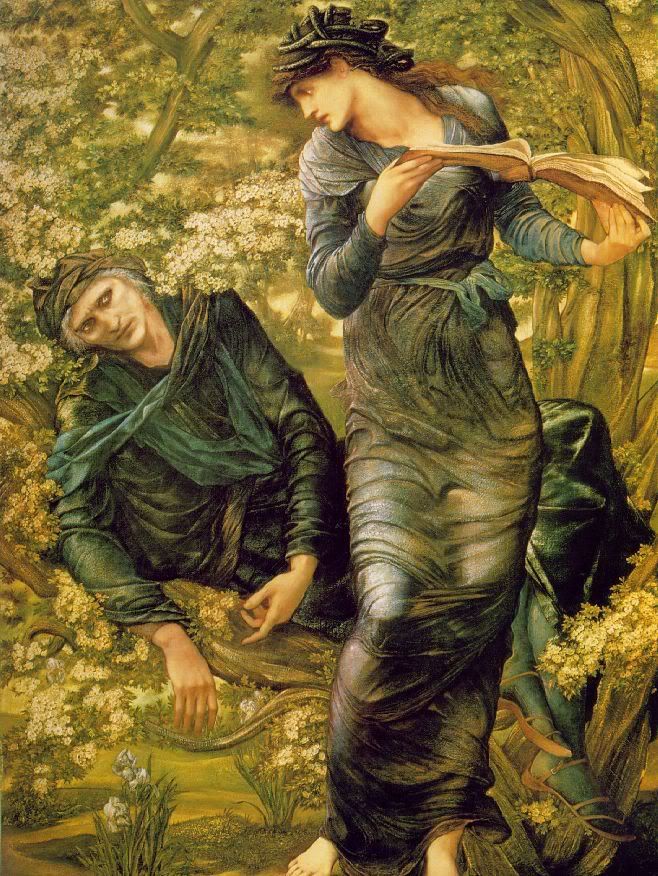
I finally received a copy of Bruce Edwards excellent essay "Toward a Rhetoric of Nineteenth-Century Fantasy Criticism" from the library today. It is included in a volume of essays entitled The Victorian Fantasists, edited by Kath Filmer and published by St. Martin's Press. I highly recommend the book as a whole. There are some great essays on William Morris and other great fantasy writers.
I will be doing a more in-depth review of articles from the book later, but I thought the book's introduction by David Jasper merited some attention as well. While reading it, I had a sudden epiphany: In the same way that many of my favourite fantasy writers use a sort of idealized version of the Medieval period for the setting for their novels, many of today's fantasists are using the Victorian times as a loose basis for their own fiction (the Steampunk sub-genre of fantasy literature is the best example of this--Golden Compass is the most obvious example of this genre that I can think of--if you've read Mervyn Peake's Gormenghast novels, they are also rather Victorian-inspired).
The nineteenth century is so evocative that I think we are naturally drawn to it. The world of Victorian fantasy was rich partly because of the romance and ritual that permeated everyday life. Bebe over at Peaches and Dreams made reference to this on Saturday, when she was writing about the movie Kate and Leopold. The 19th century was a time filled with ritual and thoughtful contemplation of what might today seem unimportant details. As Bebe notes, "a man spent time learning about the Language of Flowers so that when he sent (or gave) a certain lady a bouquet, his intentions would be clearly defined." Sadly, she goes on to note that "the rituals are so unlike today, where running into a supermarket for the first plastic-wrapped, turbo-preserved bundle or dialing for a teddy bear mixed assortment is commonplace." Sad, but true.
Of course, while the 19th century might seem romantic to us today, men like William Morris who actually lived through it were already bemoaning the rapid changes of the industrial revolution. I suppose it's all a matter of perspective. Do you think fantasy writers in the future will be inspired to write about our generation? Perhaps. I suppose you could say that the Harry Potter series is an example of this, but the stories are so infused with Medieval elements that I think it's difficult to see them as being very contemporary. In any case, I think both the middle ages and the Victorian era will continue to hold a great deal of romantic power over readers as well as writers. How could they not?
Monday, January 28, 2008
Victorian Fantasy
Posted by
Margaret
at
10:18 AM
![]()
![]()
Labels: books, c.s. lewis, fairy tales, william morris
Subscribe to:
Post Comments (Atom)


No comments:
Post a Comment